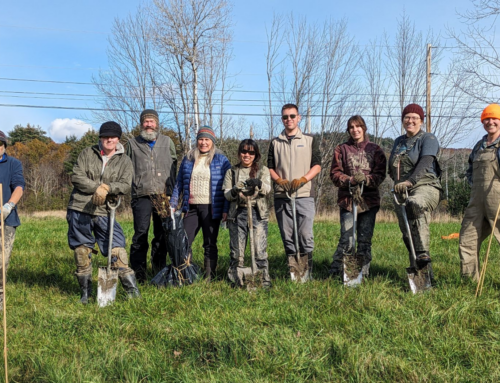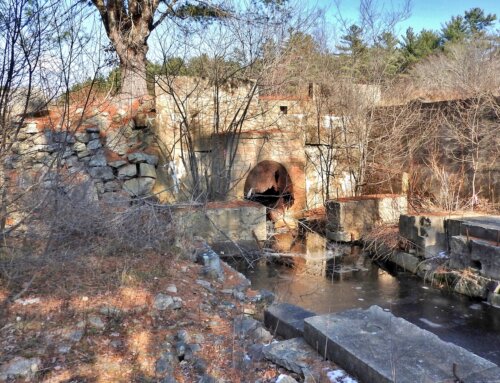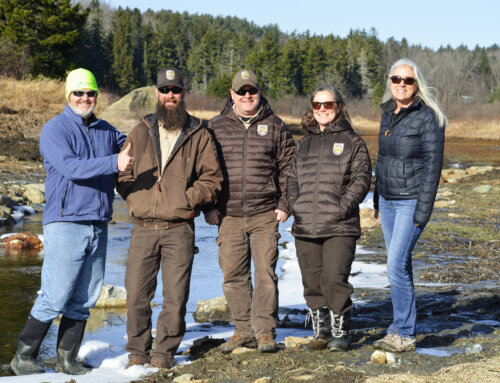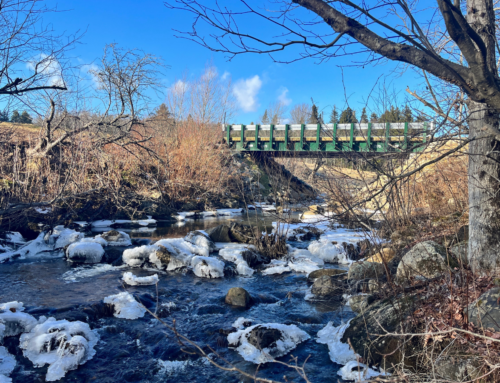FOR IMMEDIATE RELEASE – November 6, 2013
Connecticut River hydropower relicensing reaches first major milestone
Greenfield, MA – The Federal Energy Regulatory Commission (FERC) recently released its list of required studies to be performed by the two owners of five Connecticut River hydropower facilities up for coordinated relicensing. The multinational corporate owners – TransCanada and GDFSuez – will be required to undertake 33 and 38 studies, respectively, over the next two years to develop a record for decision makers and the public to use in creating new operating licenses.
The Connecticut River Watershed Council (CRC) is the only organization that has commented on every proposed study and issue leading up to this first milestone, submitting over 300 pages of comments on behalf of its members and the public. “We are very pleased that FERC made a number of important changes based on our input,” says CRC Upper Valley River Steward David Deen. “The companies will now have to get more and better information on these facilities’ impact on our river.” Required studies will look at the hydropower impacts on fish passage behavior, habitat, flow, erosion, water quality, recreation, historical buildings, and archaeological sites, among other things. “However, FERC was short sighted in denying requests to include climate change impacts in the scope of studies,” Deen added.
CRC is also disappointed that FERC would not require FirstLight (GDF Suez) to evaluate the costs and feasibility of making Northfield Mountain pumped storage facility into a closed-loop system, fully or partially eliminating daily withdrawals and discharges into the Connecticut River. “Why shouldn’t we at least study making Northfield Mountain a closed-loop system?” inquires CRC Massachusetts River Steward Andrea Donlon. “We already know there are real impacts to the river from this facility. They can afford to make this facility state-of-the-art since it plays an important role in our energy sector, acting like a storage battery for peak energy periods. After all, this is a tremendously profitable facility run by one of the largest energy companies in the world,” notes Donlon.
“We are not satisfied with how recreation will be studied and considered, particularly in Massachusetts,” says CRC Executive Director Andrew Fisk. “There is a tremendous opportunity to learn about what the public wants and needs for recreational opportunities on their river – not just abutters or current users who will be surveyed in 2014. Since FERC or the companies will not be doing this work, we will do it because the public deserves a solid deal in exchange for the use of their rivers by these corporations,” noted Fisk. FERC also let the companies off the hook when they did not require an economic analysis of recreational uses.
Vermont Yankee closing impacts relicensing studies
The August announcement by Entergy to decommission the Vermont Yankee Nuclear Power Plant at the end of 2014 will affect the content of many of the studies and may affect the overall licensing schedule. FERC will hold two added technical meetings for the power companies and stakeholders to discuss adjustment of proposed studies and/or schedules. CRC staff will attend these meetings that are to be held Monday, November 25, 2013, 9AM at Northfield Mountain Visitor Center, 99 Millers Road, Northfield MA 01360 and Tuesday, November 26, 2013, 9AM at Marlboro College Graduate School, Glass Room, 28 Vernon Street, Brattleboro VT 05301.
About the relicensing
The five hydro facilities, accounting for over 30% of hydropower generation in New England, include Wilder, Bellows Falls and Vernon dams in Vermont/New Hampshire, owned by TransCanada and the Turners Falls Dam and the Northfield Mountain Pump Storage Project in Massachusetts, owned by FirstLight Power, a subsidiary of GDF Suez. The current licenses for these facilities were last issued between the late 1960s and 1980s and all expire in 2018. FERC, which oversees the relicensing process, issued its initial ruling on the proposed study plans in September.
Connecticut River Watershed Council river stewards attended dozens of meetings and submitted over 300 pages of detailed comment letters and study requests to FERC identifying key environmental issues and recommending studies that would help all stakeholders better understand the impact of these facilities on the river. Since this relicensing process began in 2012, CRC has been the one nonprofit to analyze and comment on all of the proposed studies. River Stewards David Deen and Andrea Donlon have also coordinated and facilitated comments from a broad range of stakeholders including national and regional environmental advocacy and science organizations, regional planning commissions, state and federal resource agencies, sporting clubs, municipalities, paddling and boating organizations, Native American groups, marinas, and land trusts. CRC will remain involved in the process until licenses are reissued in 2018.
“These facilities affect 175 miles of the Connecticut River,” says CRC Executive Director Andrew Fisk. “Once issued, the licenses will remain in effect for 30-50 years. Our goal is to ensure hydro operations are balanced with protections and improvements for the River. We use solid scientific and technical information to negotiate the best deal for our rivers – and our presence makes a difference.”
To learn more about these projects visit CRC’s website at ctriver.org. To provide your input to CRC staff, contact them at 413-772-2020 or crwc@ctriver.org.
The Connecticut River Watershed Council advocates for the entire, four-state Connecticut River watershed, working to protect water—the river, its tributaries, lakes, fish—and the land, plants, and creatures connected to that water to keep them safe now and for future generations. To learn more about CRC, or to make a contribution to help protect the Connecticut River, visit ctriver.org or call 413-772-2020.
# # #







